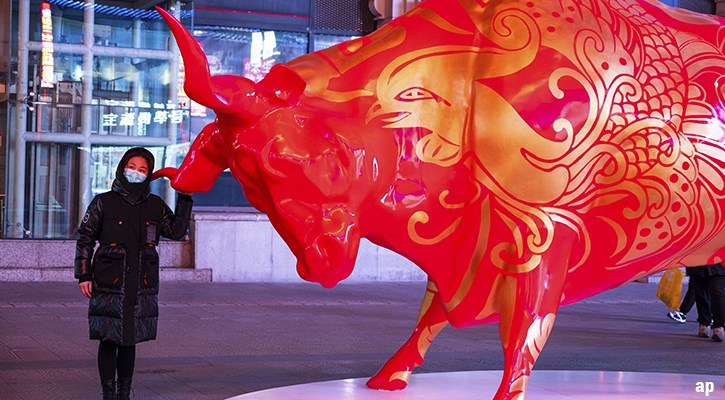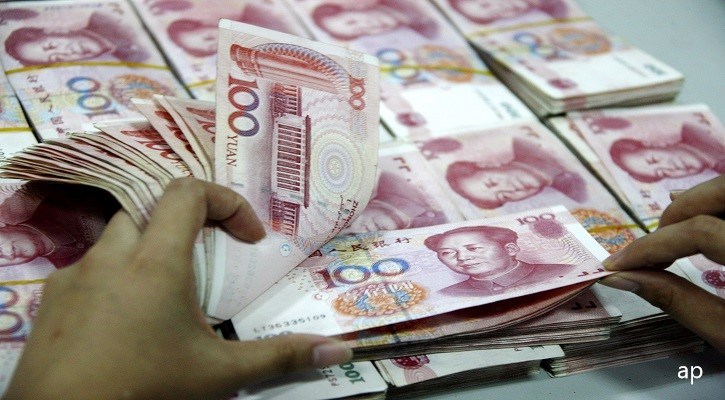Holly Black: Welcome to Morningstar. I'm Holly Black. With me is Roderick Snell. He is Manager of the Baillie Gifford China Growth Fund. Hello.
Roderick Snell: Hi there. How are you doing?
Black: So, Roderick, we've just been celebrating Chinese New Year, or at least they have in China, and probably celebrations are very different to what was happening there last year. What's the outlook for the region for you?
Snell: I think our long-term outlook is very positive for the region. I think over the next sort of five years or so, we're going to see a huge divergence between countries that have responded well to the Covid crisis, which is China, and those that haven't. And if you look at the West, we've got a situation where we spent trillions of dollars in stimulus trying to get out of this problem, interest rates have been collapsed to 0, if not negative, and we have very little growth. And you compare that to places like China where growth looks like it'd be 5% to 6% going forward over the next few years, interest rates are extensible, and they haven't blown up their balance sheets in the process. So, I think China has come out of this in a much, much stronger position and we would like to see lots of capital flowing from the West to the East over the next five, six years.
Black: And has that bounce back been a surprise to you as a fund manager there? How have you managed that turnaround?
Snell: I think the success of how they controlled COVID and the speed of it was surprising. I suppose they had the advantage of previous issues such as SARS, which certainly helped, and they embraced technology far faster than we did in the West. They used the likes of Tencent's apps to have a test and trace system out to a billion people within a month of the crisis starting. So, they certainly had experience. They certainly utilized technology and it's been very successful probably quicker than we thought. Although our portfolios were geared towards companies that have benefited from that technology and the rapid recovery in the country.
Black: So, it is tech names that we've heard a lot about over the past year is leading the charge across the world. But are there any other areas in China that are particularly exciting for you?
Snell: Yeah, I think there are lots of areas throughout the country. We've got a large part in tech, but we've also got an awful lot of focus directly on the consumer and also in the healthcare space to name a few. I think healthcare is really interesting. You've obviously got a very large and aging population in China, and just as in the technology companies, it's a key focus of the government and many of the best private companies. So, huge amounts of R&D again to the country. You've got a large captive audience and a very sound regulatory environment for drugs combined with a lot of innovation that's coming from the tech space. So, I think healthcare is one area that's really exciting.
And then, the other area which has really been taking off particularly in the last 12 months has been green technology. China has said that it's going to try and be carbon neutral by 2060. They're looking already the largest car market in the world, 50% market share. They're looking to grow that four or five-fold in the next five to six years. So, areas such as batteries, they've got the world's leading battery maker, CATL, for electric vehicles, and we think this is really a long-term theme with some great companies in.
Black: But it's interesting because you don't really think of China as being a green economy. How is that transition taking place, because it hasn't seemed a priority for the country in the past?
Snell: Sure. Now, if you go back five or ten years, China was up there with some of the most polluting countries in the world. I think what you've seen is the middle class has continued to expand in the country. There's been a firm desire from the population to have a cleaner, better environment. I suppose it's all part of increasing aspirations in the country. And if there's one really strong point for China it is worth emphasizing, it's that unlike many other countries even in the West, when they want to do something, they can. (Indiscernible) they've laid out and what the government has been saying, you know, the environment now is an absolute top priority and I think they will be very effective in this area over the next 10 or 20 years.
Black: And are there any areas for caution at the moment? I know the U.S. trade tariffs debacle has weighed on sentiment. Is there light at the end of the tunnel there now?
Snell: Sure, yeah. I mean, when it comes to the U.S. trade wars, I think perhaps it's worth highlighting just how ineffective they've actually been. Despite all the talk we hear of tariffs on Chinese goods, et cetera, Chinese exports have been booming. We've seen the best growth we've seen in the past decade in the last quarter, and they're taking significant share away from the likes of America and Europe. So, China hasn't really been affected, particularly by those tariffs. And indeed, going forward, I think what the country has realized is that it's going to see increased aggression from the U.S., these issues aren't going to go away, and it's double down on everything to make sure that it is self-sufficient and reliant over the next 10 or 20 years. So, R&D and innovation have really continued to grow at a very rapid rate, and it's now an imperative for the country. So, I think what the U.S. has done here is really wake up a sleeping giant.
Black: Roderick, thank you so much for your time. For Morningstar, I'm Holly Black.





























